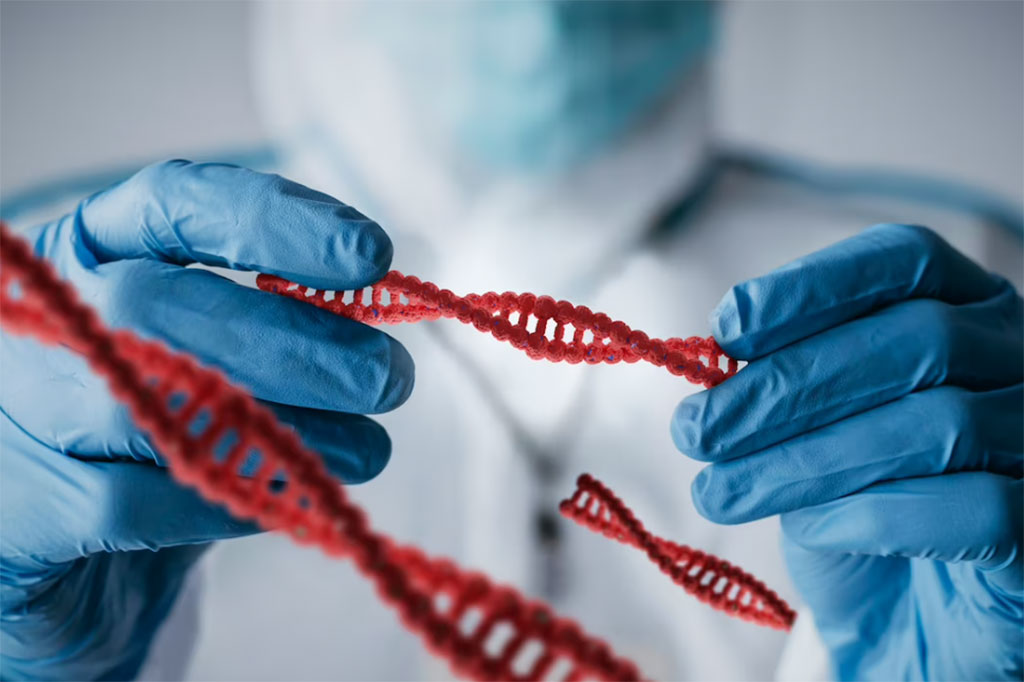Simple Blood Test Can Detect Breast and Ovarian Cancer Risk without Genetic Sequencing
Posted on 12 Jun 2023
The BRCA1 and BRCA2 genes, critical for DNA repair, can sometimes mutate and cause an increased risk for certain types of cancer, including breast, ovarian, pancreatic, and prostate cancer. In the US, those with a family history of these cancers may be advised to undergo genetic testing for mutations in these genes. If found positive, they could opt for additional screening or surgery to mitigate their risk. However, in the US, only 10% out of the estimated one million presumed carriers of BRCA1/2 mutations are aware of their status. Furthermore, in India, BRCA mutation tests are not widely accessible. A more efficient detection method could potentially allow many more individuals to become aware of their inherited high cancer risk.
Researchers from Dana-Farber Cancer Institute (Boston, MA, USA) and their collaborators have discovered an alternative method to identify increased cancer risk associated with BRCA1 and BRCA2 mutations, which doesn't involve genetic sequencing. Instead of searching for BRCA1/2 gene mutations, the assessment focuses on functional changes that take place when the pathway regulated by these genes is impaired. This innovative risk-detection technique could lay the groundwork for a more accessible, affordable, and potentially more comprehensive method of identifying an inherited risk for breast or ovarian cancer.

The researchers were able to identify increased risk via the presence of a specific group of microRNAs in the blood. MicroRNAs, short, non-coding, hairpin-shaped RNA molecules that circulate in our blood, are emerging as powerful disease biomarkers. The presence of a certain group of microRNAs indicates an active breakdown in the DNA repair process, similar to the distinctive knocking sound from a malfunctioning car engine. Conversely, the absence of this group suggests a working DNA repair process, as smooth as a purring engine.
In the proof-of-concept study, the researchers analyzed blood samples from 653 individuals sourced from six biorepositories located in the US, Poland, and India. Approximately half of the samples tested positive for BRCA mutations. Utilizing next-generation sequencing, the team identified the microRNAs in each sample and created a data set containing the microRNAs and BRCA mutation status for each sample. By applying machine learning, they were able to identify a unique microRNA pattern exclusively present in the samples positive for BRCA mutations. Their model correctly identified the presence of BRCA mutations 94% of the time, confirming this approach as a novel method to identify increased cancer risk.
While this proof-of-concept study does not form the foundation for a clinical test that could be included in an annual exam, it does hint at the feasibility of an affordable clinical test. PCR tests, such as those used for detecting COVID-19, could replace next-generation sequencing to detect the microRNA signature, thereby making it affordable and accessible. The researchers believe such as test could provide a more comprehensive risk assessment compared to genetic sequencing of the BRCA1 and BRCA2 genes, as it captures active signs of pathology, irrespective of the gene mutations causing it. Currently, genetic testing only detects known defects in a few specific genes that might disrupt the DNA repair process.
“What if we had an accessible and affordable test for inherited cancer risk that you can get done as an annual physical, the same way we test for diabetes or heart disease risk?” said senior author and Dana-Farber researcher Dipanjan Chowdhury, PhD. “These study results suggest that such a test is in the realm of possibility.”
Related Links:
Dana-Farber Cancer Institute














